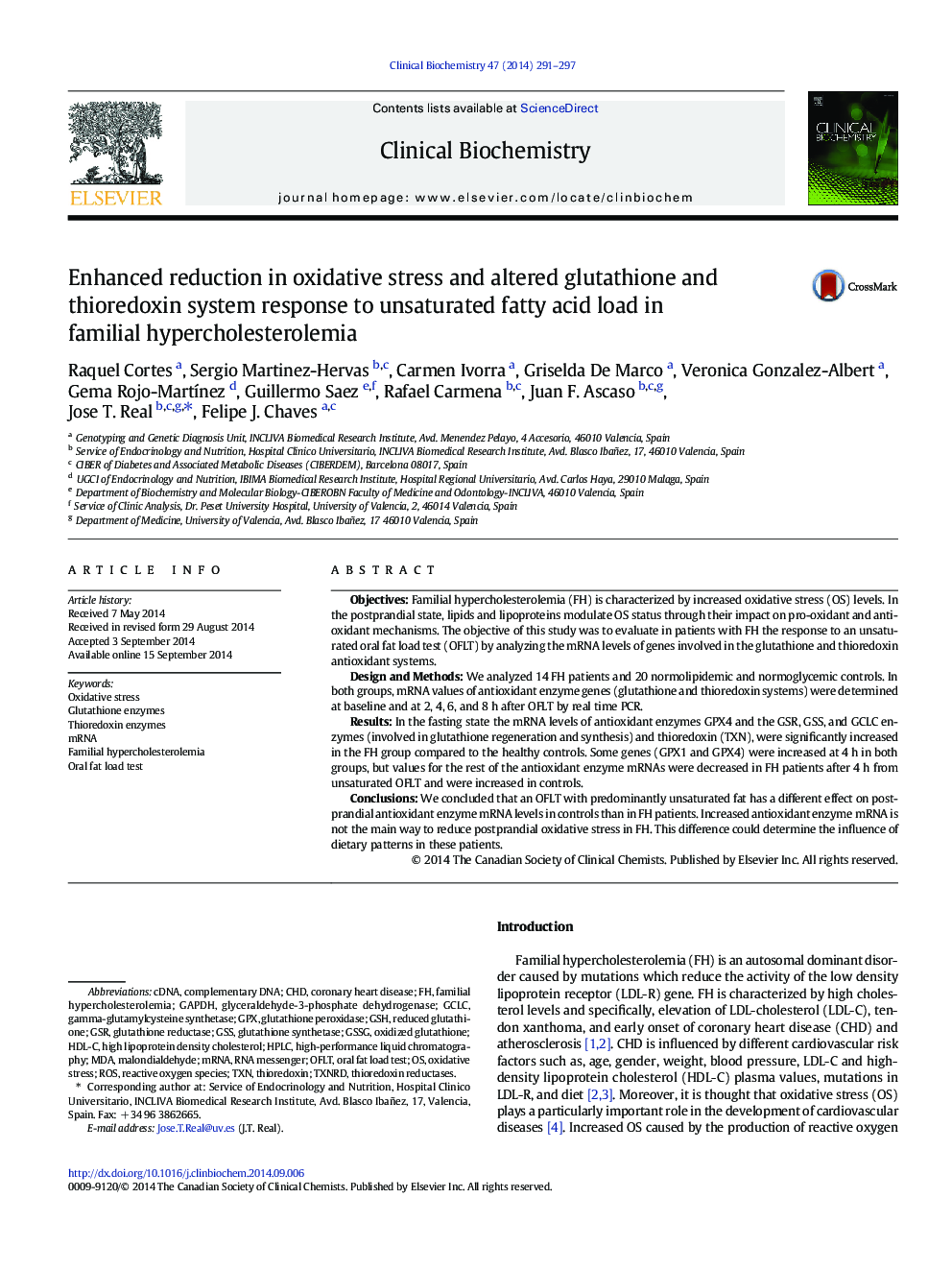| کد مقاله | کد نشریه | سال انتشار | مقاله انگلیسی | نسخه تمام متن |
|---|---|---|---|---|
| 1968920 | 1059752 | 2014 | 7 صفحه PDF | دانلود رایگان |
• Unsaturated fat decreases postprandial oxidative stress in hypercholesterolemia.
• Unsaturated fat has no effect on antioxidant enzyme mRNA in hypercholesterolemia.
• High antioxidant mRNA is not the main way to reduce postprandial oxidative stress.
• This difference could determine the influence of dietary patterns in these patients.
• Variability within groups of GSH products/enzymes could influence the results.
ObjectivesFamilial hypercholesterolemia (FH) is characterized by increased oxidative stress (OS) levels. In the postprandial state, lipids and lipoproteins modulate OS status through their impact on pro-oxidant and antioxidant mechanisms. The objective of this study was to evaluate in patients with FH the response to an unsaturated oral fat load test (OFLT) by analyzing the mRNA levels of genes involved in the glutathione and thioredoxin antioxidant systems.Design and MethodsWe analyzed 14 FH patients and 20 normolipidemic and normoglycemic controls. In both groups, mRNA values of antioxidant enzyme genes (glutathione and thioredoxin systems) were determined at baseline and at 2, 4, 6, and 8 h after OFLT by real time PCR.ResultsIn the fasting state the mRNA levels of antioxidant enzymes GPX4 and the GSR, GSS, and GCLC enzymes (involved in glutathione regeneration and synthesis) and thioredoxin (TXN), were significantly increased in the FH group compared to the healthy controls. Some genes (GPX1 and GPX4) were increased at 4 h in both groups, but values for the rest of the antioxidant enzyme mRNAs were decreased in FH patients after 4 h from unsaturated OFLT and were increased in controls.ConclusionsWe concluded that an OFLT with predominantly unsaturated fat has a different effect on postprandial antioxidant enzyme mRNA levels in controls than in FH patients. Increased antioxidant enzyme mRNA is not the main way to reduce postprandial oxidative stress in FH. This difference could determine the influence of dietary patterns in these patients.
Journal: Clinical Biochemistry - Volume 47, Issue 18, December 2014, Pages 291–297
